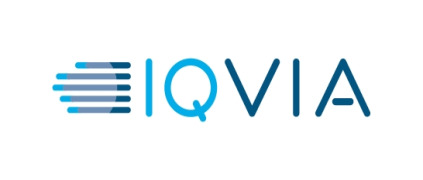Digital health tools ‘becoming integral parts of mainstream medicine’: IQVIA report

More than 350,000 health apps are currently available, increasingly focused on helping them manage their conditions rather than on wellness management
Some digital health tools are becoming integral parts of mainstream medicine, according to findings released by the IQVIA Institute for Human Data Science in a new report, Digital Health Trends 2021: Innovation, Evidence, Regulation, and Adoption.
The number of consumer health apps continues to grow with more than 90,000 news apps released in 2020. According to the report, that makes more than 350,000 apps currently available for consumers.
Furthermore, apps are increasingly focused on helping consumers manage their health conditions rather than on wellness management. Consumer disease management apps now account for 47 percent of the most widely used digital health apps in 2020, up from 28 percent in 2015. Apps for mental health, diabetes, and cardiovascular care account for almost half of the disease-specific apps. Simultaneously, digital therapeutics and digital care products are growing in volume and gaining reimbursements.
Evidence of the positive impact on health outcomes from the use of digital tools is also increasing and becoming more robust. This evidence supports inclusion of these tools in treatment guidelines for an expanded set of health conditions. At the same time, validated wearables and digital biomarkers are more numerous. These devices are gaining adoption in clinical trials and are enabling remote monitoring of patients.
“We are finding evidence of a growing maturity of digital health tools in mainstream medicine,” said Murray Aitken, IQVIA senior vice president and executive director of the IQVIA Institute for Human Data Science. “While there has been a significant growth in apps and digital health tools since 2013, we are beginning to detect improved quality of the digital health tools in the management of health conditions.”
A few key highlights of the report include:
Growing maturity of digital health tools: Multiple types of digital health tools contributed to reducing the impact of the COVID-19 pandemic. These tools are now established parts of the digital health landscape. Consumer apps are the most widely used digital health tools, shifting rapidly toward disease-specific needs. But quality is inconsistent, and consumers need to be selective.
Digital Therapeutics and Digital Care products: Incorporating software as a means to treat, prevent or manage specific diseases or conditions has increased. More than 250 such products are now identified, including about 150 products commercially available and the rest in development.
Wearables and digital biomarkers: The use of wearables, connected sensors and digital biomarkers is expanding. They are gaining adoption in clinical trials and enabling remote monitoring of patients that can influence care delivery.
Evidence: The body of evidence around the effectiveness of digital health apps is now substantial and supports the inclusion of digital health tools in treatment guidelines for an expanded set of health indications.
Commercialization: Multiple commercialization pathways now exist for digital health tools. This expanded access offers opportunities for developers to attain an economic return on investment for those tools supported by robust evidence and user demand. Four broad commercial models are now in place and being used to pay or reimburse digital tool developers. Those models are direct-to-consumer, value-based contracting, “device-like” reimbursement and “drug-like” reimbursement models.
The full version of the report, including a detailed description of the methodology, is available here

Related News
-
News CPHI Milan 2024 - From the Floor
Milan and CPHI welcome you to 2024 CPHI Milan! As we celebrate the 35th edition of our flagship CPHI show, editors Vivian Xie and Lucy Chard bring you the latest from the show floor, conference sessions, and innovative solutions from all exhibitors, at... -
News The BIOSECURE Act: implications for the pharma supply chain
On September 9, 2024, the US House of Representatives voted to pass the bill titled the BIOSECURE Act (the Act), which lists several Chinese companies in the pharmaceutical supply chain. The Act will prohibit American companies from contracting or doin... -
News A Day in the Life of a Global CDMO Chapter Lead – Manufacturing
The 'Day in the Life of' series has covered many aspects of the pharmaceutical pipeline, including R&D and procurement, now we're taking a look at manufacturing from a global CDMO perspective. -
News CPHI Milan Speaker Spotlight: CDMO relations with Pharma and Start-Ups
In the run-up to CPHI Milan, we sit down with some of the experts and thought-leaders speaking at this year’s conferences. -
News Women in Pharma: Advocating for trans healthcare in pharma
In our monthly series on women in the pharmaceutical industry, we interview leading experts in the pharmaceutical supply and value chain to discuss the importance of gender diversity in healthcare, the workplace, and beyond. -
News Updated – Changing abortion pill access according to the US FDA and Supreme Court
After the approval of the medical abortion pill, mifepristone, by the US FDA, states across the USA approach the distribution of the pill differently, some ruling against allowing access to the drug. -
News CPHI North America 2024 – From the Floor
Welcome to Philly! CPHI North America once again graces the Philadelphia Convention Center, 7–9 May 2024. -
News Drug Patent Expiries: a steep cliff or opportunity for innovation?
The pharmaceutical industry faces a patent cliff together in the years leading up to 2030. Learn what this means for drug pricing, their outsourcing partners, and drug innovation of the future.
Position your company at the heart of the global Pharma industry with a CPHI Online membership
-
Your products and solutions visible to thousands of visitors within the largest Pharma marketplace
-
Generate high-quality, engaged leads for your business, all year round
-
Promote your business as the industry’s thought-leader by hosting your reports, brochures and videos within your profile
-
Your company’s profile boosted at all participating CPHI events
-
An easy-to-use platform with a detailed dashboard showing your leads and performance




.png)


.png)